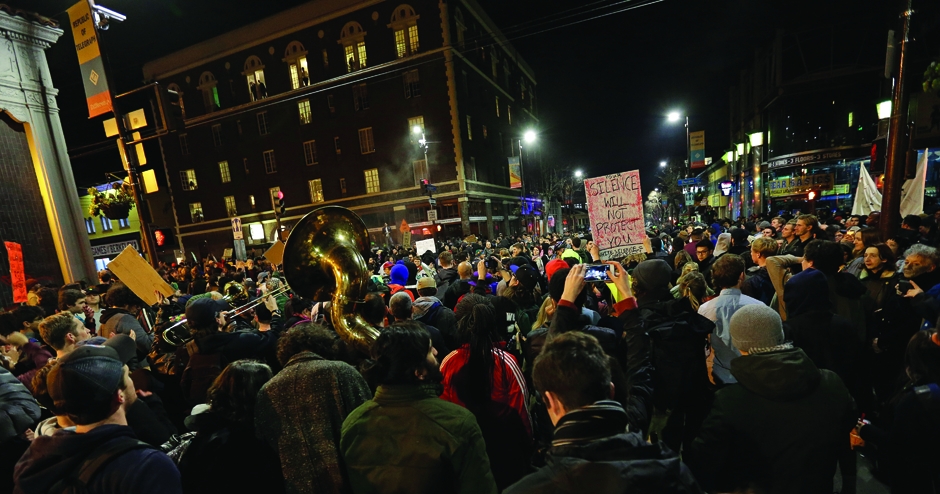

Pictured are husband and wife duo Hila and Ethan Klein of h3h3productions. Their work consists of, in-part, reaction videos and comedy skits.
By Zach Landau | A&E Editor
On Aug. 23, Ethan and Hila Klein of the YouTube channel h3h3productions won a year-and-a-half-long lawsuit filed against them by Matt Hosseinzadeh, otherwise known as Matt Hoss of the channel MattHossZone.
Hoss’ original complaint, filed April 2016, alleged that the Kleins infringed on his copyright, later adding the charges of defamation and misuse of DMCA counter notifications after the Kleins made a video informing their audience about the lawsuit and criticizing Hoss for filing in the first place.
The verdict marks another step in a long series of similar lawsuits establishing legal precedent for fair use on the video-sharing platform.
The content that Hoss alleged infringed his copyright was a reaction video — a popular genre within YouTube where a commentator watches and critiques another piece of media — that the Kleins made in response to Hoss’ video titled “Bold Guy 12 Parkour Girl.”
In his original complaint, Hoss alleges that the Kleins were violating his copyright and did “nothing to alter the original video with new expression, meaning or message,” declaring their video is not protected under fair use.
As explained by copyright attorney and YouTuber Leonard French, fair use is an affirmative defense, or an explanation someone can use to justify using another’s material.
“You’re affirming that act (of taking another person’s content) was done or committed,” French explained in a livestream on his channel. “But you’re saying that you have a reason that [the act] was legal.”
Hoss issued a DMCA takedown of the Kleins’ video on April 23, to which the Kleins issued a counter notification — which Hoss objected to as DMCA misrepresentation — as well as making a video a month later titled “We’re Being Sued.” Hoss amended his suit in response to their video, claiming defamation.
In her opinion, Judge Katherine Forrest of the United States District Court of the Southern District of New York stated that, “Any review of the Klein video leaves no doubt that it
constitutes critical commentary of the Hoss video.”
More critically, Forrest also said that the Kleins’ video “is quintessential criticism and comment,” indicating that their reaction exemplifies a standard for fair use.
“She’s basically saying [the Klines’] video is the model of criticism and comment,” French said in the same livestream. “She’s saying they did everything properly in that statement as far as their use of copyrighted material.”
Forrest also dismissed Hoss’ allegations of DMCA misrepresentation and defamation, claiming that the Kleins acted in good faith, that they had a legitimate defense and that they said nothing factually wrong or defamatory.
French stressed that the lawsuit is not strictly over, as Hoss can appeal the decision — to which he responded, “I highly, highly, highly doubt it,” — and the Kleins can ask the judge to have Hoss pay for their legal fees.
In the decision’s aftermath, the Kleins have called the case a win for fair use, with Ethan stating in a video uploaded to the h3h3productions channel, “I’m so happy we [fought the case]. Because this is a landmark case, not just for us. The wording the judge put into the opinion is going to strengthen fair use across YouTube.”
Later in the same video, Ethan said, “I’m elated. I’m relieved. I’m stoked. I’m happy we took this journey. I’m happy that the opportunity came to us to stand up and set this important precedent for fair use on YouTube.”




